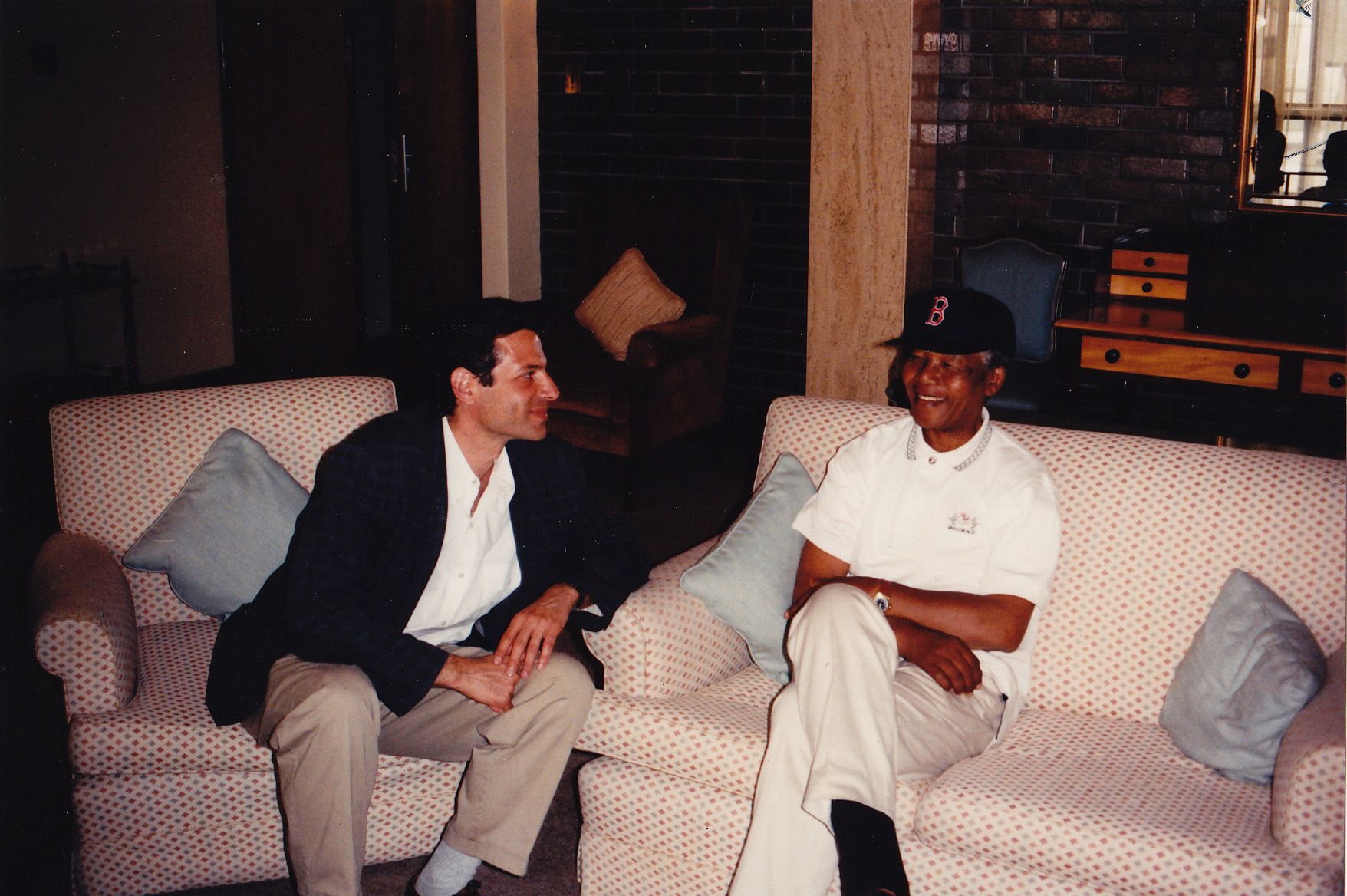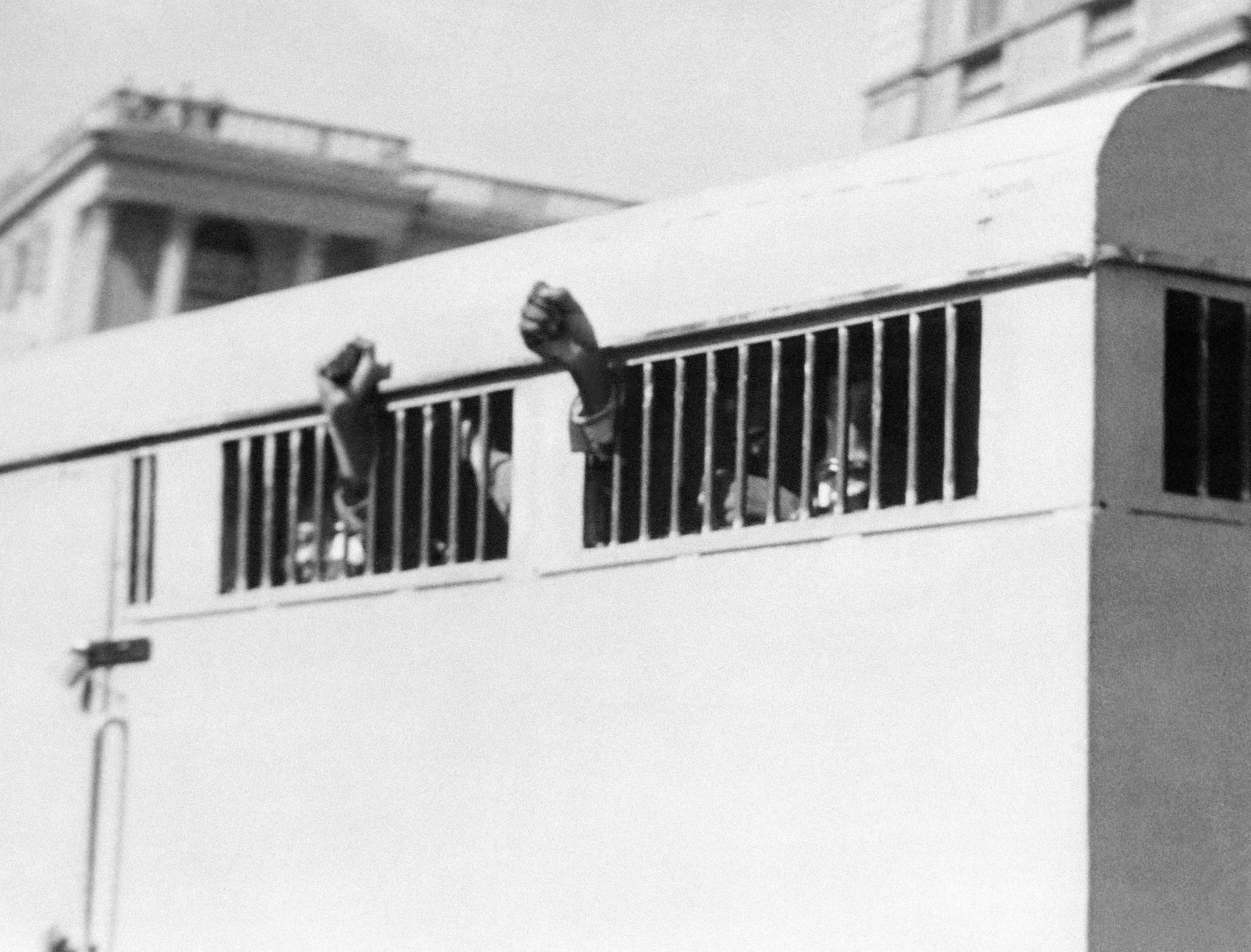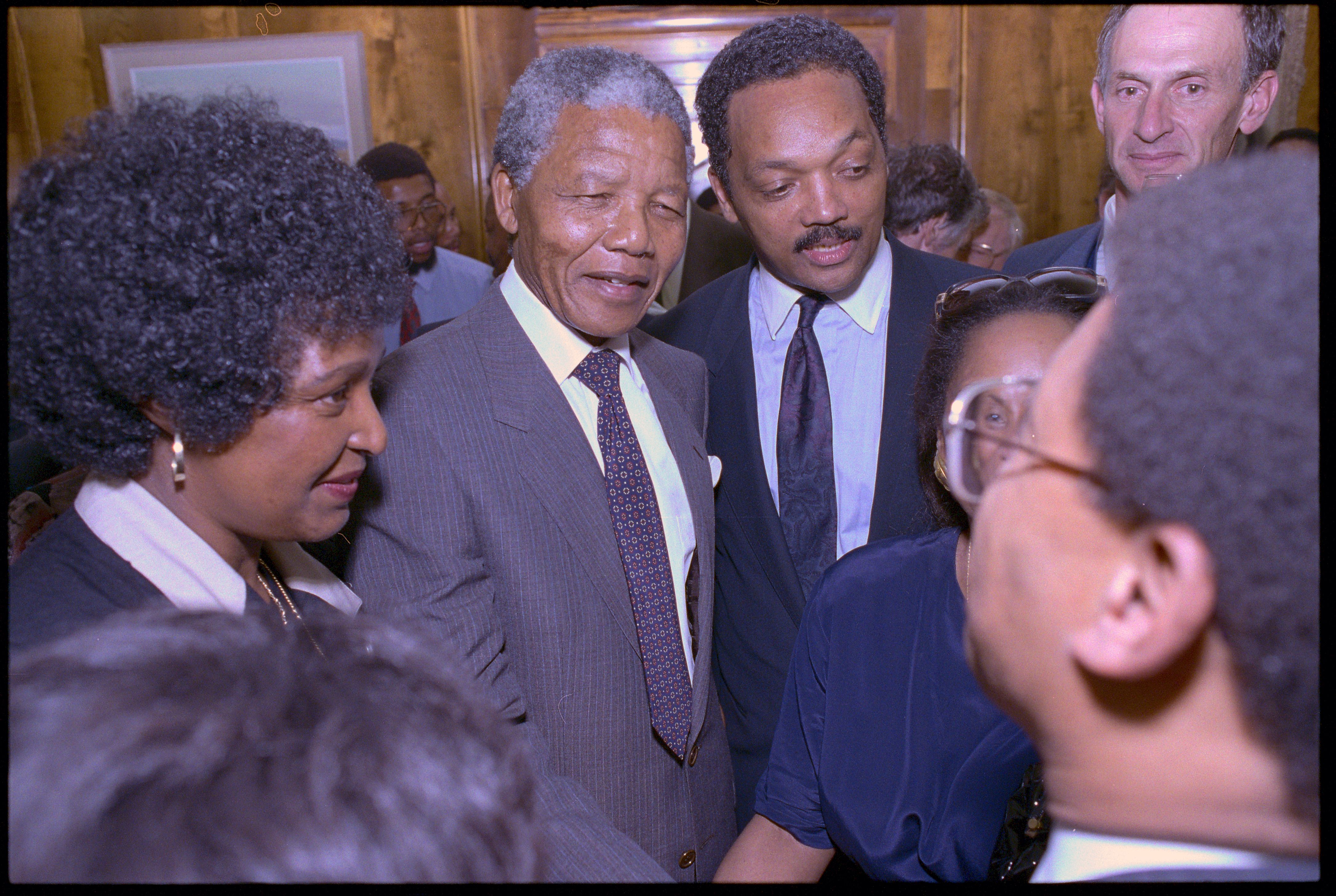New details being published Monday by TIME.com appear to strengthen claims that the CIA helped South Africa's racist regime capture anti-apartheid leader Nelson Mandela in 1962.
Why it matters: The report adds to evidence that President John F. Kennedy's administration played a role in Mandela's arrest at a time when U.S. officials were coming to grips with an increasingly intense civil rights movement in America.
- Mandela wound up spending 27 years in prison for leading the African National Congress (ANC), which opposed apartheid policies that kept South Africa's Black residents segregated, often in inhumane conditions.
- He finally was released in 1990 as apartheid crumbled, and was elected South Africa's first Black president in 1994, serving for five years. He died in 2013 at age 95.
Zoom in: Richard Stengel — the collaborator on Mandela's autobiography, "Long Walk to Freedom," and a former editor at TIME — writes about a previously unpublished interview he taped with Mandela in 1993. The interview surfaced as Stengel prepared for a podcast series on Mandela.
- Stengel reveals that Mandela told him then that he had heard an American consul with CIA connections had tipped off South African authorities about Mandela's travel habits.
- In 2017, the CIA declassified documents — described by Stengel for the first time — that identified Mandela as a "probable communist" and showed the agency was tracking the ANC leader as he traveled outside South Africa.
- Taken together, Stengel says, the details add significantly to the evidence that the CIA was tracking Mandela and helped South African authorities arrest him as he was traveling from Durban to Johannesburg in 1962.

The intrigue: The new details largely support claims made in 2016 by Donald Rickard, a retired CIA officer, who told British film director John Irvin that he had informed South African police about Mandela.
- Beginning in the summer of 2021, TIME and Stengel filed several requests under the U.S. Freedom of Information Act, seeking information about whether the CIA had tipped off South African police.
- In response, the agency said it "can neither confirm nor deny the existence or nonexistence of records."
- The CIA declined to comment on Stengel's report.
Flashback: When he was arrested in 1962, Mandela had just returned from a two-month trip across Africa, where he had been raising money for the ANC's military campaign and receiving military training himself.
- Through the years, news stories reported nuggets about a possible link between the CIA and Mandela's arrest.

- A Johannesburg Star story in 1986 cited a "retired senior police officer" saying South African police had been tipped off to Mandela's whereabouts by a U.S. diplomat in Durban who was "the CIA operative for that region."
- Four years later, the Atlanta Journal-Constitution reported that a "retired [American] intelligence official" identified a "senior CIA operative" as giving South Africa every detail about Mandela's whereabouts.

What they're saying: "I believe that one of America's values, particularly in this struggle against authoritarianism, is that America is transparent about its past, that we try to repair the breach," Stengel told Axios.
- "I think it would be good for the intelligence community to be more forthright about this, the way they have about other things in the past."
Don't forget: Stengel's 70 hours of taped interviews with Mandela are the focus of a recently released 10-part podcast.
Disclosure: Stengel was Axios co-founder Mike Allen's editor at TIME.







